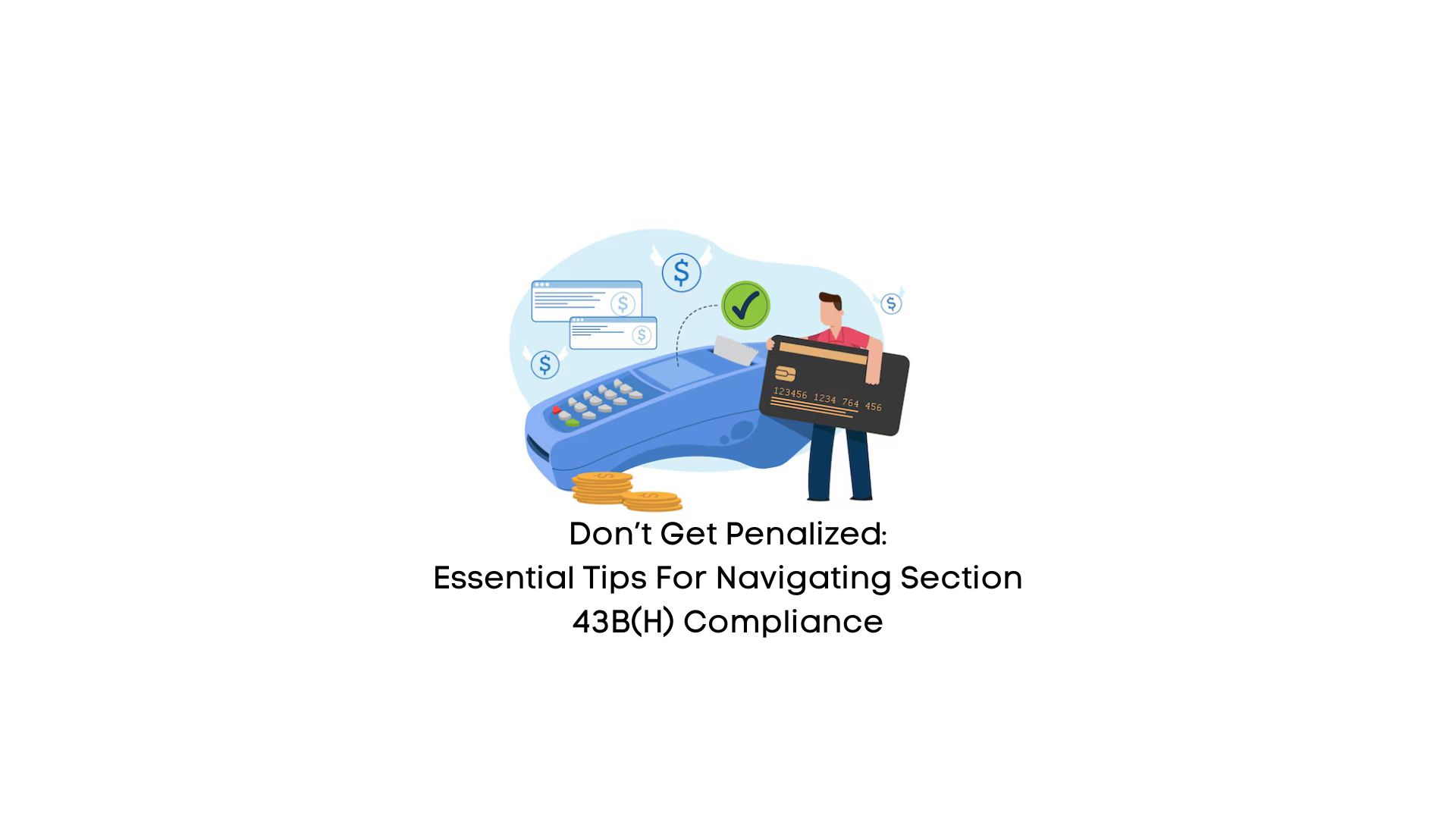
22 Apr Don’t Get Penalized: Essential Tips for Navigating Section 43B(h) Compliance

Introduction
In the realm of business, compliance with regulatory frameworks is paramount for sustaining trust and integrity. Adhering to Section 43B(h) of the Income Tax Act 1961 stands as a critical obligation to avoid penalties for delayed payments to micro and small enterprises. Nevertheless, these regulations often present challenges, encompassing working capital constraints and disrupted business relationships. In this comprehensive guide, we delve into the negative impacts of non-compliance and furnish actionable strategies to navigate these regulations effectively.
Understanding Section 43B(h) of the Income Tax Act 1961
The Income Tax Act 1961, under Section 43B(h), mandates the timely payment of dues to micro and small enterprises, as per the stipulated time frames delineated in Section 15 of the Micro, Small, and Medium Enterprises Development Act 2006. Failure to comply with these provisions can lead to adverse consequences for businesses.
Implications of Non-Compliance
Crisis of Working Capital
One of the primary repercussions of non-compliance is the exacerbation of working capital crises faced by enterprises. Delayed payments impede the cash flow of small and micro-enterprises, hindering their operational capabilities and growth prospects.
Disrupted Supply Chains
Non-payment to small and micro-enterprises can result in a breakdown of trust within supply chains. Large and medium enterprises may refrain from engaging with smaller counterparts, fearing potential legal ramifications or reputational damage.
Stifled Growth Opportunities
Small and micro-enterprises, reliant on timely payments for sustenance, face significant hurdles in securing new business opportunities. Non-compliance stifles their growth potential, impeding innovation and economic development.
Strategies to Ensure Compliance
Obtain Updated Certifications
Enterprises can mitigate the risks associated with non-compliance by ensuring their adherence to regulatory frameworks. Obtaining fresh MSME certificates and validating trading activities can bolster their compliance efforts.
Clarify Registration Status
By providing declarations affirming non-registration under MSME, enterprises can clarify their standing, ensuring transparency and regulatory alignment.
Differentiate Capital Goods Suppliers
Vendors supplying capital goods may not fall under the purview of Section 43B(h). Enterprises can delineate such suppliers to streamline compliance efforts.
Mitigating the Impact on Working Capital
While compliance with Section 43B(h) is essential, mitigating the impact on working capital remains a priority for businesses.
Leveraging Relief Provisions
Enterprises can avail themselves of relief provisions stipulated within the Income Tax Act. By furnishing evidence of timely payments, businesses can alleviate the burden on their working capital.
Exploring Alternative Financing Options
Exploring alternative financing options such as invoice financing or trade credit can provide temporary relief, ensuring the smooth functioning of operations amidst regulatory challenges.
Conclusion
Navigating the intricacies of regulatory compliance is indispensable for fostering sustainable business practices. Section 43B(h) of the Income Tax Act 1961 underscores the importance of timely payments to small and micro-enterprises, albeit posing challenges for businesses. By adopting proactive strategies and leveraging relief provisions, enterprises can mitigate the negative impacts of non-compliance while safeguarding their operational efficiency and fostering robust business relationships.


No Comments